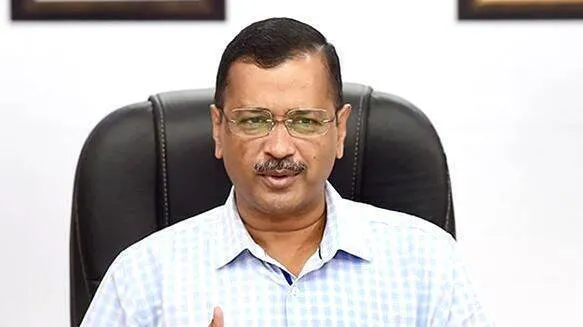

NEW DELHI: When IB and CBI arrested him in the liquor scam case, Delhi Chief Minister Arvind Kejriwal had said that he would rule from Tihar Jail itself. However, his current decision to resign as Chief Minister is a purely political move. As he has realised that the corruption allegations would backfire, his main objective is to gain people's sympathy.
The Supreme Court's bail condition restricts him from chairing meetings, reviewing files, and making decisions as Chief Minister. He can, however, continue to hold the position with its accompanying official residence and privileges. The BJP might try to impose the President's rule citing that there is an administration crisis as the Chief Minister is barred from entering the Secretariat. As there is no electoral coalition, the Congress party, which is a constituent of the 'INDIA' front is also effectively an opponent. Moreover, the delay in making significant policy decisions in matters announced by the party such as the Mahila Samman Nidhi Yojana, settlement of water bills, and provision of ration to daily wage labourers, among others, are likely to backfire.
Meanwhile, Kejriwal's current plan is to appoint a confidante as Chief Minister and run the government from behind the scenes. Additionally, he will have time to rectify the damage caused by the liquor scam, strengthen the party, and focus on the election campaigns in the Haryana and Delhi assembly elections.
Can contest election, condition will continue
Kejriwal claims that he will return to the Chief Minister's post after proving his innocence before the people. As long as he is not found guilty or punished in the case, there is no obstacle for Kejriwal to contest in the Delhi Assembly elections and become the Chief Minister again if the party wins a majority. However, until the investigation and trial procedures are completed, the conditions of the Supreme Court's bail order will apply. The purpose of the Supreme Court's condition is to prevent the misuse of power to influence the case.